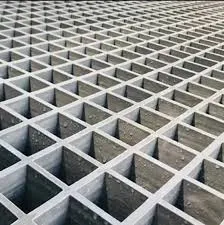
-
 Afrikaans
Afrikaans -
 Albanian
Albanian -
 Amharic
Amharic -
 Arabic
Arabic -
 Armenian
Armenian -
 Azerbaijani
Azerbaijani -
 Basque
Basque -
 Belarusian
Belarusian -
 Bengali
Bengali -
 Bosnian
Bosnian -
 Bulgarian
Bulgarian -
 Catalan
Catalan -
 Cebuano
Cebuano -
 China
China -
 China (Taiwan)
China (Taiwan) -
 Corsican
Corsican -
 Croatian
Croatian -
 Czech
Czech -
 Danish
Danish -
 Dutch
Dutch -
 English
English -
 Esperanto
Esperanto -
 Estonian
Estonian -
 Finnish
Finnish -
 French
French -
 Frisian
Frisian -
 Galician
Galician -
 Georgian
Georgian -
 German
German -
 Greek
Greek -
 Gujarati
Gujarati -
 Haitian Creole
Haitian Creole -
 hausa
hausa -
 hawaiian
hawaiian -
 Hebrew
Hebrew -
 Hindi
Hindi -
 Miao
Miao -
 Hungarian
Hungarian -
 Icelandic
Icelandic -
 igbo
igbo -
 Indonesian
Indonesian -
 irish
irish -
 Italian
Italian -
 Japanese
Japanese -
 Javanese
Javanese -
 Kannada
Kannada -
 kazakh
kazakh -
 Khmer
Khmer -
 Rwandese
Rwandese -
 Korean
Korean -
 Kurdish
Kurdish -
 Kyrgyz
Kyrgyz -
 Lao
Lao -
 Latin
Latin -
 Latvian
Latvian -
 Lithuanian
Lithuanian -
 Luxembourgish
Luxembourgish -
 Macedonian
Macedonian -
 Malgashi
Malgashi -
 Malay
Malay -
 Malayalam
Malayalam -
 Maltese
Maltese -
 Maori
Maori -
 Marathi
Marathi -
 Mongolian
Mongolian -
 Myanmar
Myanmar -
 Nepali
Nepali -
 Norwegian
Norwegian -
 Norwegian
Norwegian -
 Occitan
Occitan -
 Pashto
Pashto -
 Persian
Persian -
 Polish
Polish -
 Portuguese
Portuguese -
 Punjabi
Punjabi -
 Romanian
Romanian -
 Russian
Russian -
 Samoan
Samoan -
 Scottish Gaelic
Scottish Gaelic -
 Serbian
Serbian -
 Sesotho
Sesotho -
 Shona
Shona -
 Sindhi
Sindhi -
 Sinhala
Sinhala -
 Slovak
Slovak -
 Slovenian
Slovenian -
 Somali
Somali -
 Spanish
Spanish -
 Sundanese
Sundanese -
 Swahili
Swahili -
 Swedish
Swedish -
 Tagalog
Tagalog -
 Tajik
Tajik -
 Tamil
Tamil -
 Tatar
Tatar -
 Telugu
Telugu -
 Thai
Thai -
 Turkish
Turkish -
 Turkmen
Turkmen -
 Ukrainian
Ukrainian -
 Urdu
Urdu -
 Uighur
Uighur -
 Uzbek
Uzbek -
 Vietnamese
Vietnamese -
 Welsh
Welsh -
 Bantu
Bantu -
 Yiddish
Yiddish -
 Yoruba
Yoruba -
 Zulu
Zulu
fiberglass chemical product
Understanding Fiberglass Chemical Products An Overview
Fiberglass, a composite material made from a plastic reinforced by glass fibers, has become a staple in various industries due to its unique properties
. The versatility of fiberglass chemical products is evident in applications ranging from aerospace to automotive, from construction to marine.The primary advantage of fiberglass is its excellent strength-to-weight ratio. This characteristic makes fiberglass products significantly lighter than their metal counterparts while maintaining comparable structural integrity. As a result, industries are increasingly turning to fiberglass for applications where minimizing weight is crucial, such as in aircraft and high-performance vehicles.
Another key feature of fiberglass is its resistance to corrosion and chemicals. Traditional materials like steel and aluminum can deteriorate over time due to exposure to harsh environmental conditions and chemicals. In contrast, fiberglass remains unaffected by moisture, acids, and salts, making it ideal for use in the chemical processing, oil and gas industries, and even marine environments. For instance, fiberglass storage tanks are commonly used to store corrosive substances without risk of damage.
fiberglass chemical product

Moreover, fiberglass can be molded into complex shapes and can be finished with various coatings for added protection and aesthetic appeal. This flexibility allows manufacturers to create custom solutions tailored to specific needs, whether it’s for the intricate designs of automotive components or the robust structures required in construction. With advancements in production technologies, including resin transfer molding and continuous filament winding, the possibilities for fiberglass applications continue to expand.
In addition to its physical properties, fiberglass is increasingly recognized for its sustainability. Many manufacturers are now focused on producing fiberglass products that incorporate recycled materials and are themselves recyclable. This shift not only reduces the environmental impact associated with the production of new materials but also aligns with the growing demand for eco-friendly products across all sectors.
The future of fiberglass chemical products looks promising, as ongoing research and development aim to enhance their properties further. Innovations such as smart fiberglass composites with embedded sensors could revolutionize industries by providing real-time data on structural integrity and environmental conditions.
In conclusion, fiberglass chemical products represent a dynamic and evolving segment of material science. Their unique blend of strength, chemical resistance, and versatility makes them invaluable across various industries, while the pursuit of sustainability ensures their relevance for years to come. As technology advances, we can expect even more innovative applications and improvements in fiberglass products, solidifying their position in the market.
Latest news
-
Exploring the Benefits of Top Hammer Drifter Rods for Enhanced Drilling PerformanceNewsJun.10,2025
-
High-Precision Fiberglass Winding Machine for GRP/FRP Pipe Production – Reliable & Efficient SolutionsNewsJun.10,2025
-
FRP Pipes & Fittings for Shipbuilding - Corrosion-Resistant & LightweightNewsJun.09,2025
-
Premium FRP Flooring Solutions Durable & Slip-ResistantNewsJun.09,2025
-
Premium Fiberglass Rectangular Tanks Durable & Lightweight SolutionNewsJun.09,2025
-
Tapered Drill String Design Guide Durable Performance & UsesNewsJun.09,2025









